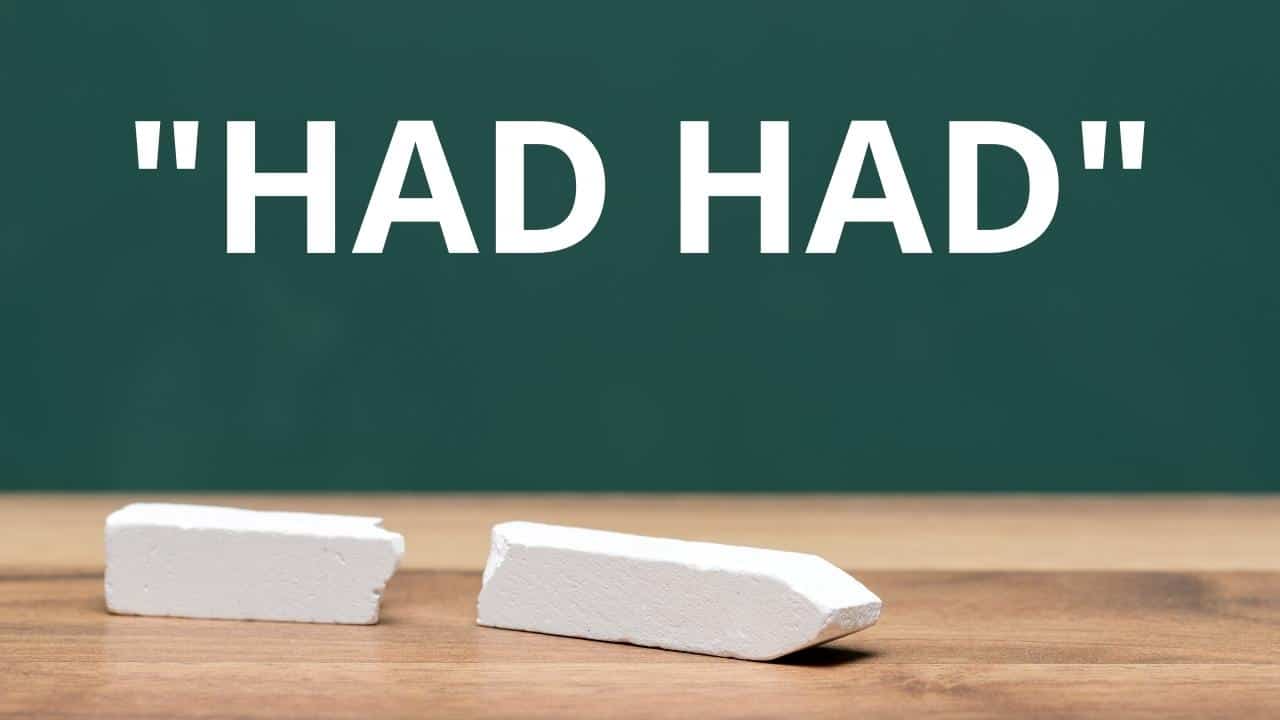HAD definition: 1. past simple and past participle of have, also used with the past participle of other verbs to…. Learn more.. The past perfect form of have is had had (had + past participle form of have). The past perfect tense is used when we are talking about the past and want to refer back to an earlier past time. She felt marvelous after she had had a good night's sleep. They dismissed him before he had had a chance to apologize.

Penggunaan HAVE, HAS dan HAD

have had/ has had/ had had/ will have had Explanation/Examples (English YouTube

HAVE HAD, HAS HAD & HAD HAD English grammar How to use these forms correctly YouTube

English Grammar Has had, Have had, Had had सीखें English speaking practice YouTube

How to use Has Had Have Had Had Had Will Have Had in one sentence correctlyHas Have Had by adil

HAS HAD, HAVE HAD, and HAD HAD in English usages, examples and practice set

Has Had, Have Had Had Had and Having Has, Have EnglishWithMusharaf. YouTube

英文 have had / has had / had had 用法與中文意思!看例句搞懂 全民學英文

HAVE, HAS, HAD, HAVE HAD, HAS HAD, HAD HAD?

Had Had /has had and have had differences, uses and complete explanation in English grammar

Using "Had Had" in English — Meaning, Usage & Grammar

How to use has had/have had/had had in one sentence/english grammar rule/s n jyoti learning

HAS HAD, HAVE HAD, HAD HAD ‖ Madali lang pala! ‖ Basic English Grammar ‖ Aubrey Bermudez YouTube

Penggunaan HAVE, HAS dan HAD

Use of has had, have had, had had. YouTube

All the Coffee He Had Had Had Had No Effect Grammar Coffee Etsy Geek quotes, Funny nerd, Mugs

Use of HasHad, HaveHad, HadHad Basic English Grammar English by Vishal Sir YouTube

Have Has Had Worksheets

How to Use Have Had (and Had Had)

Use of HasHad, HaveHad, HadHad Basic English Grammar English speaking practice YouTube
I have had a good day today so far. The subject is I, so we need to use the form "have.". Remember, "has" is only used for he, she, or it. Then add "had," which is the past participle of the verb. A lot of students don't understand how is it possible to use "have" twice in the sentence. They say it doesn't sound right!. To create this tense with different subjects, we need to conjugate it like this: I have had. You have had. He has had, she has had, it has had. We have had. They have had. If I were speaking to my native English-speaking friends, I would probably use a contraction. I've had.